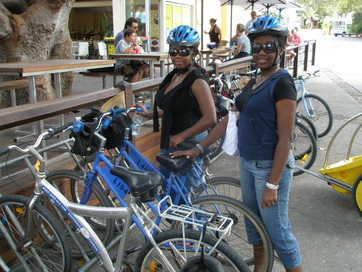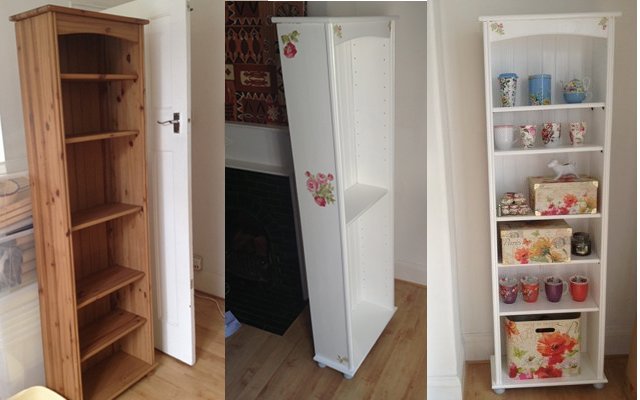|
Some business acumen is natural and inherent: buy low, sell high and you make a profit. However, a lot of it needs to be learnt. Once you realise you don’t know much of what you need to know, you’re a step ahead the game, the next step is filling in those gaps.
There are three solutions to the knowledge gap:
I would love to have a coach or mentor that truly understands the current global business landscape and all the opportunities that online resources represent. As far as I’m concerned that’s where any serious money is going to be made. The problem is, I can’t afford any of the guys (and they are usually guys) that know more than I already know and I found most courses to be too basic for my needs. The good news is that most business gurus have written books espousing their knowledge so I decided to get all those books and learn the best that I could through this avenue. This is one of the best business decisions that I have ever made. I paid for a free audiobook trial on audible.co.uk; I looked at audible.com which prices in USD but it is more expensive so I opted into the UK website. After the free book trial I realised that business audiobooks were the future and I paid for a 24 book annual subscription – that was too much and I have since reduced it to 12 books per annum. Through audiobooks I learnt things that pushed my business in a way no coach or mentor that I can afford could have. Just to give you an idea of what these gurus charge, Tim Ferriss, author of The Four Hour Work Week says a request for mentoring needs to come with a six-figure cheque – yes, that’s right six figures – and fortune 500 CEOs do pay up because he is so worth it. With this comprehensive list of business books that helped me out you can transform the way you think and the way in which you approach business:
These books are general business and marketing books. Once you decide on the business you actually want to pursue, zone in on specific people in that industry and on any industry journals that might be available. There are many niche markets out there and all of them will have a zealous group of enthusiastic participants that are willing to share their knowledge – most of it completely free via blogs. "It takes as much energy to wish as it does to plan." Eleanor Roosevelt
0 Comments
I thought I would throw this out there because sometimes I think about it.
This article will be most beneficial to those that are just about to enter the world of work. Once you leave school and start work it seems as though life is very focused towards accumulating “stuff”: furniture, crockery, cutlery, electronics (TVs, phones, iPads), so on and so forth. The list is pretty endless because by the time you have everything, you’re already tired of the initial purchases so you start wanting replacements. Even where an item still works, you simply want something newer, a better model or just more! It’s exhausting. You think it will make you happier but really, you’re just happy because you have what everyone else around you has. If they had nothing you also be semi-content with nothing. If you go to your village your don’t find them complaining about the lack of a fridge and a TV, they just want the luxury of three square meals a day. How much faster could you get yourself out of the rat race if you shunned the insatiable quest for “stuff” for proper wealth accumulation? Imagine this world: You get a well-paying job but instead of getting the best car you can afford you get a very basic yet functional car. Better still, you walk or cycle to work most of the time. In your free time you don’t waste money on alcohol and keeping up with the neighbours’ kitchen and living room. Instead, you purchase a few good quality items when you can afford them – no more. You spend a little more to buy durable items because you don’t want to keep replacing them. All excess money is saved so you can buy your own house; your very own piece of real estate. When you eventually own your home you don’t waste money cramming each and every corner and surface with things you can ill afford. Instead, you go for a minimalist, stylish look. You also don’t buy gadgets just because everyone has them. You own a small 12-inch TV screen and peoples’ negative and sarcastic comments do nothing to faze you. You know when the time is right you will get a large TV – if you want one. You would rather have less today for more tomorrow. This is actually my ideal life; it’s the life I used to live. I still had a black and white phone screen when friends who earned less than half of what I did were on the newest smartphones. I aspire toward minimalism and that aspiration helped me save A LOT of money. I liked myself when I was more of a minimalist than I am now. People laughed at my tiny TV and I didn’t care – then, after a certain point I started spending too. Although I only ever spend money that I actually have I think I spend far too liberally and yet, owning more doesn’t make me any happier than owning less did. If anything, it makes me less happy because I could be using that same money to clear my mortgage. My reasoning is, you only live once and I after eight years of being abstemious I should allow myself a little fun. Ultimately, however, I promise you that if you make the conscious decision to live the minimalist life you will be no less happy than you currently are. You might even be more happy as you see you bank balance kaboom! “Too many people spend money they haven't earned to buy things they don't want to impress people they don't like.” Will Smith We Malawians are very spoilt. When a job needs to get done we almost invariably find a someone else to do it for us. Whether it’s painting, electrics, plumbing, decoration, anything – we want someone else to do it.
Why not just do it yourself? Living in the UK I have been amazed at the things that I can do that I never thought I could. Hammers, paint brushes, sewing machines, you name it, I’ve probably used one and strangest of all, I enjoyed it! Opportunity cost means that what you spend on one thing cannot be spent on something else. Even if the amount you are paying the labourer appears small that is still money you can’t spend on something else. Here are a few things you can do to save money; all of them are easy and non-taxing. Sewing. Certain things are very quick and easy to sew provided you can get your hands on a sewing machine. This week I sewed my first ever cushion cover and it actually looked rather good. I saved money on the filling as well by using an old pillow for the job. Granted getting cushions sewn is still relatively cheap in Malawi but things like clothes have started getting expensive and I have a couple of friends that have really sharpened their skills in the clothes making department so much so that they frequently make their own clothes for dinner outings. Knit Baby on the way? Why not sew some of his/her clothing? Create your own designer clothing line just for your child. Paint. My house needs a fresh coat of paint and I’m going to do it myself. Why? Because my budget is limited and I also want to get a new set of mugs and other kitchen accessories. Getting the accessories wins. Up-cycle furniture. The current thing I am into is shabby chic furniture. To get the shabby chic look you need painted wooden furniture and it doesn’t come cheap, no sirree! I happened upon someone who was getting rid of a solid wood bookcase that was still in perfect condition so I asked if I could have it and she said yes. I took it home, painted it and decorated it. The amount I spent in upcycling the furniture is a fraction of what a piece like this would go for. If I wanted to sell it I would fetch 8 to 10 what I spent in upgrading the bookcase. I personally don’t want to sell it because I know it would cost me an arm and a leg to replace it. There are so many things that you can do yourself if you build up your confidence. You might think you can’t sew, knit, paint or up-cycle but when push comes to shove you will be surprised what you can do. I think our current culture not only makes us lazy but it discourages creativity. If you think creatively you can resolve any problems you’re facing, financial or otherwise. As for time, most people have a lot of leisure time. If you have a worker in the house doing most of your chores how can you complain about time? You can pursue most DIY jobs in front of a TV or with the radio for company. “The turning point, I think, was when I really realized that you can do it yourself. That you have to believe in you because sometimes that's the only person that does believe in your success.” Tim Blixseth So, you’re broke and when you look at your budget you simply can’t see a single item that you can do without. Really? Look again. How much are you spending on transport every month? After rent and food this is probably the next biggest expenditure and it’s something that you might be able to control to a greater extent than you realise. Option 1: Buy a Bike! It sounds insane to suggest cycling but it really isn’t that revolutionary. When I was very young my father used to cycle to work for exercise. At the time he was the Managing Director and full owner of Candlex Limited so it wasn’t a money issue, he just felt that he needed the exercise.  My father is very anti-obesity and sees exercise as extremely vital so he didn’t care what anyone thought, he just got on with it. I respect that. Our roads are busier now than they were in the 1990s but still, at least in Blantyre, cycling is very much a possibility in certain areas. Take a look at all the possible routes you can take to work to see if this is possible for you. If you’re scared, try it out to see if you’re overestimating the danger. I started cycling to work myself in 2009 and I dropped 10 kg over about 4 to 6 months plus I saved a lot of money. If there isn’t anywhere for you to shower when you get to work then your colleagues won’t be thanking you for cycling; this is not a realistic option for you. There remain two other possibilities. Option 2: Walk This was my mother’s preferred option. She decided she needed to get more exercise at some point and started walking to work. Her resolve unfortunately didn’t last a week. Apparently someone stopped literally every five minutes to offer her lift and after the third offer she normally gave in! Not everyone will have this problem so if you live 30 minutes to one hour away from town on foot, ditch the car and get walking. Not only will your wallet start to feel heavier but your heart and your waistline will be heavily indebted to you too. Option 3: Share A Car This should be possible for almost everyone. If there are two or three people that live near you and work a short distance from where you work, why not share a car? One day you use your car, the next day you use the other. You would save a lot of money on fuel and on the upkeep of your car. The money saved can be invested in home improvements or in anything else that you desire. Some of you may not even have to look far to car-share. If you and your boyfriend/husband or sibling use separate cars start sharing. If you have errands to run in addition to going to work you just need to communicate with each other to ensure everything gets done. Most budgets will allow for some savings to be made; when things are already tight you just need to look that little bit harder. “The secret of how to live without resentment or embarrassment in a world in which I was different from everyone else was to be indifferent to that difference.” Al Capp |
For 2 years until early 2014 I wrote a weekly personal finance and business column for Malawi's leading media house, The Times Group. The target is middle-class, working African women.
This is a reproduction of the articles that appeared in the weekend edition of Malawi News. Categories
All
Archives
May 2014
|
Heather Katsonga-Woodward, a massive personal finance fanatic.
** All views expressed are my own and not those of any employer, past or present. ** Please get professional advice before re-arranging your personal finances.








 RSS Feed
RSS Feed



